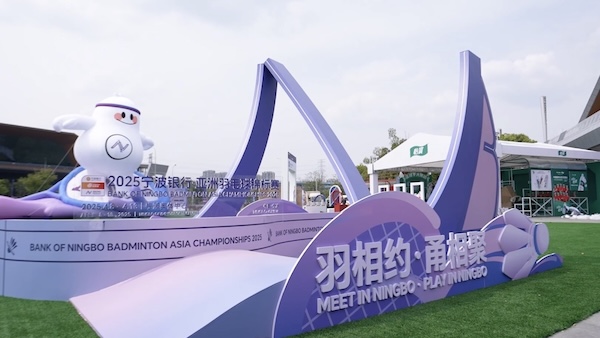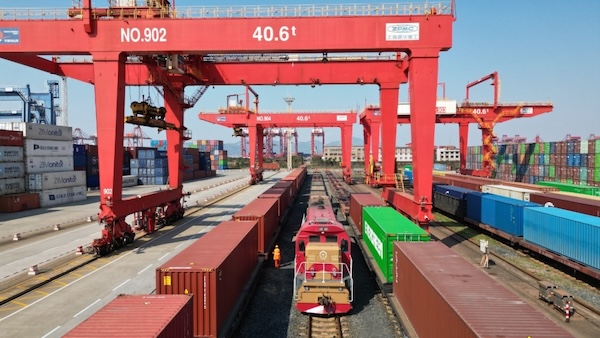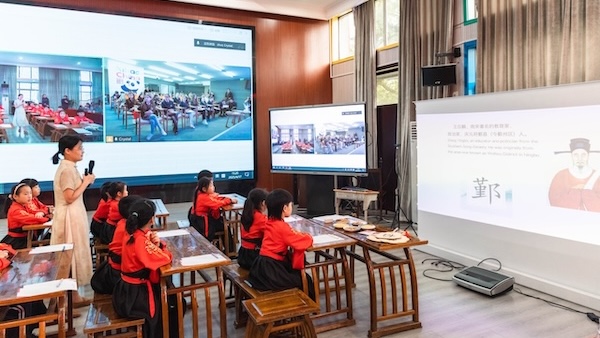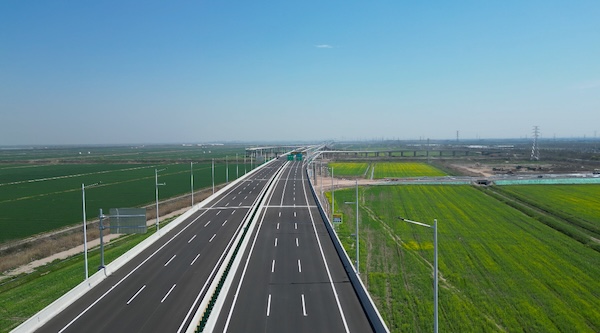Firsthand experience of traveling in restrictions-free China after pandemic
I visited China after COVID-19-induced travel restrictions were lifted in December 2022, and between February and April 2023, I made three business trips to the country, visiting a number of academies, research institutes, holding meetings with Chinese scientists, and participating in science conferences. I am therefore one of those foreigners who have firsthand experience of life in China after the relaxation of the travel restrictions.
All the three times that I traveled to China this year, I flew Emirates from Johannesburg to Dubai and from Dubai to Guangzhou, my port of entry in China. Each time, all I needed to enter China was a negative RT-PCR test. No pre-departure self-isolation or any kind of observation was required.
The flight from Dubai to Guangzhou was almost full, with the two-thirds seating capacity limit imposed during the pandemic being scrapped. And I was not subjected to any form of quarantine or isolation on landing in Guangzhou during my three visits to China.
I visited Beijing in December 2022. After the travel restrictions were relaxed, I was able to travel to Zhejiang, Shandong, Hebei and Hainan provinces to foster collaborations in science, technology, and innovation between the African Academy of Sciences and Chinese research institutes, as well as biotechnology laboratories and companies.
I traveled between cities by high-speed trains as well as domestic flights. Everywhere I went, I saw the usual hustle and bustle of life in the streets and shopping malls, while the roads were full of traffic. Restaurants were always full, so much so that in a city in Zhejiang we were told to wait for two hours before we could get a table for dinner. Those were all clear signs of economic recovery after three years of strict pandemic prevention and control measures including travel restrictions. There was also a sense of boosted confidence among the people about business recovery.
Situation after lifting of travel restrictions
One of my three visits to China coincided with Spring Festival, a time when the Chinese people travel back to their hometown for family reunion dinner on the eve of the Lunar New Year. According to Chinese media, 226 million trips were made during the seven-day Spring Festival Golden Week holiday, an increase of 74 percent from 2022, with consumer spending increasing by 12.2 percent. No wonder the Chinese economy grew by 5 percent in the first quarter of this year.
Through conversations with my fellow academics in China, I got to know the real situation about the COVID-19 pandemic in the country. Although it is true that there was a surge in infections after China withdrew its pandemic prevention and control policy, the Chinese people I met had either fully recovered from COVID-19, or had gotten over it without showing any symptoms.
Most significantly, even people who had serious symptoms were allowed to quarantine or self-isolate at home, because mandatory mass quarantine arrangement was no longer in place. Also, I saw people buying medicines at some pharmacies in an orderly manner. I know that initially there was some shortage of medicines, but supply was quickly restored to abundance.
One of the leading Chinese scientists I met is Jia Yinsuo, a retired professor in his 70s. He is my close friend and brother, and a distinguished member of the African Academy of Sciences. I could not meet him the first time because he had contracted the novel coronavirus. However, he quickly recovered and we met in Beijing before I returned to Africa. Jia's experience was a true reflection of the millions of senior citizens in China.
I also had the privilege of attending, while in Beijing, the 107th birthday of a Chinese woman who represented the true story of longevity in China.
Despite being a foreigner, I have always traveled freely in China, not to mention being warmly welcomed by my Chinese friends, academics, and even ordinary people I have met at shopping malls and restaurants. During my visits to China, I have been treated with respect every where. Apart from enjoying warmth and kind hospitality, I have also been greeted by many smiling faces on flights and trains.
Life returns to normal in China after 'reopening-up'
While in China, I could feel what "reopening-up" really means for the Chinese economy, and what the everyday life of the people is really like. Negative nucleic acid test, mandatory before Jan 8, 2023, to enter indoor public premises including hotels, restaurants and shopping malls, is no longer required.
Shopping malls, restaurants, cinemas are thus welcoming customers back with open arms. Schools and universities are back to offline teaching, with students and teachers enjoying their familiar lively campuses. Workers in the cities have started commuting in public transport, and metropolitan rush hours are regaining pace and momentum. In short, life has returned to normal in China.
What is extraordinary, though, is how China managed to achieve this in a relatively short period of time. Although the Western media tend to emphasize the "abruptness" of China's decision to lift the pandemic-related restrictions, the transition has obviously been smooth. In fact, Western media reports are a misrepresentation of what has really been happening in China, because the policy shift came at the right time and was appropriately planned and executed.
The Chinese government accords top priority to people's well-being while making any kind of policy. In response to the pandemic, China adopted a holistic approach, and struck a balance between prevention and control measures and economic development. It implemented science-based and targeted anti-pandemic measures, which would respond to the evolving situation, and minimize the pandemic's impacts on peoples' daily lives and overall socioeconomic development.
As the world experienced, the Omicron variant of the virus proved more contagious but much less lethal than the other variants. Over the course of fighting the virus, China's capacity for treatment and testing significantly improved. As a result, the country's leadership decided to adjust its pandemic control measures, shifting the focus from containing infection to preventing severe cases.
Science-based, timely and necessary move
The move was science-based, timely and necessary, and reflected the responsibility of the government. It enabled the country to strike a balance between pandemic prevention and control and economic and social development, restore normalcy in people's life, and better meet their medical needs.
China's reopening-up is good news for the world, too. Take my three visits to China this year for example. It was only because of the reopening-up that I could travel to the country and continue my collaborations with Chinese scientists.
Yet several countries put ad hoc restrictions on Chinese visitors after China reopened its borders for outbound travel. My experience proves such measures were totally unnecessary because despite the sudden increase in COVID-19 infections in China, fatalities were extremely low. It was an unwise decision based on bias rather than rational assessment.
For the global economy, China's reopening-up will have a major impact. The International Monetary Fund has already adjusted its forecast for China's economic growth this year from 3 percent to 5.2 percent. In contrast to the insular, selfish "vaccine nationalism" seen in some countries at the peak of the pandemic, economic globalization and multilateralism, which China upholds, are all about an intertwined and interdependent world, a world that works together for the common good of humanity.
Instead of continuing to politicize the virus and related issues, world leaders should unite and work constructively to further boost the global economy. BRICS is a promising multilateral body, taking pioneering measures on that front. Its summit in South Africa later this year could bring optimism and some good news for the international community.
The author is the president of the African Academy of Sciences and a fellow of the Academy of Science of South Africa.
The views don't necessarily reflect those of China Daily.

 Ningbo seabird project seeks international volunteers
Ningbo seabird project seeks international volunteers  Jakub's journey: From shipyard to sea
Jakub's journey: From shipyard to sea  Badminton Asia COO applauds Ningbo
Badminton Asia COO applauds Ningbo 


